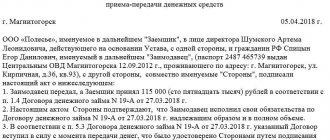How is the debtor's property sold?
The insolvency (bankruptcy) of individuals and organizations is understood as their loss of financial stability and, as a consequence, the inability to bear responsibility for their obligations.
Debtors simply do not have the money to repay loans. An authorized government agency recognizes a citizen or enterprise as insolvent on the basis of current federal laws and in accordance with the provisions of the legislation of the Russian Federation.
Legal basis
After the collapse of the USSR and until June 14, 1992, the bankruptcy procedure in Russia remained outside the attention of the government; in fact, neither the sale of debtors’ property nor the problems of creditors and bankrupts worried anyone. But already in November 1992, a law was adopted to regulate the process of declaring debtors bankrupt.
In 1993-1994 A number of regulations have been published regarding this problem. In June 1998, another bankruptcy law was published, based on the principle of insolvency. The accumulated legal framework served as the basis for the adoption of more modern legal acts that are still in force today, these are:
- Federal Law of the Russian Federation No. 127, adopted in October 2002 (from 2020, individuals can also declare their deplorable financial situation);
- Federal Law of the Russian Federation No. 229 (allows you to determine the procedure for the sale of confiscated property).
Important ! The debtor's property is sold through auctions. They can be real, inviting all interested parties to a specific location, or electronic. The procedure for conducting electronic trading is determined by Order No. 54 of February 15, 2010.
They will force you to give up your last
Who is involved in the sale of property
After completion of the bankruptcy procedure, the debtor's property is transferred to the creditor or bailiffs. It can also be implemented by a financial manager or a company specializing in such matters.
In the first case, the property is sold at auction or used for its intended purpose by the creditors themselves; state authorities no longer have anything to do with money or real estate.
Sale of property (apartment) of the debtor at auction
Thanks, but that's not an idea. You are initially replacing concepts, giving real estate activities functions that are unusual for it. A realtor is a consultant, risk insurance is for insurance companies. There you have an SRO, membership fees, guarantees, compensation, courts, etc.
I didn’t raise this topic, but I will answer. Until the realtor is responsible in rubles for the future problems of the buyer, he risks nothing except the mythical loss of business reputation in the future. And I want to eat right now! Scientifically, this is called a conflict of interest. Do you want to work and earn money? I offer a recipe. Unite into a community, pay membership fees, and let the community act as a guarantor and insurer, capable of winning the upcoming courts or compensating a bona fide buyer for the loss of property. As long as a stranger unknown to the buyer takes huge amounts of money for routine operations, demands unlimited trust in himself and is not responsible for anything, the number of naive Pinocchio will only decrease. So, I’ll give you an idea!
25 Jul 2020 stopurist 215
Share this post
- Related Posts
- How to get a labor veteran of the Ulyanovsk region in 2020
- What documents are needed to provide care for an elderly person?
- Receipt cash order - what is it for?
- We moved to another city, we are buying an apartment, will they find me for debt?
Sale of enterprise property: procedure
After the commencement of bankruptcy proceedings:
- The property is being assessed. The assessment is made by financial, arbitration manager and independent experts. This event is carried out without the participation of the debtor; creditors also have nothing to do with the assessment.
- A time for bidding (auction, competition) is set. The exact date is determined at least 1 month before the auction.
- Citizens and interested organizations are notified. To do this, they use the Kommersant newspaper.
- They inform the arbitration judge about the term, conditions of sale, and price of the property. The court must approve the procedure for conducting the auction.
- Compile a list of bidders. Only those who have previously paid a deposit and submitted the appropriate application are invited to participate. It is extremely important to fill it out correctly. Incorrect data is one of the reasons why a potential buyer is rejected from participating.
The property is put up for auction at a minimum price, but the auctions themselves are conducted in such a way that after each offer the value of the lot increases by at least 5-10%. Real estate and expensive items are sold without restrictions, but weapons and psychotropic drugs are sold at closed auctions, to which only selected individuals and organizations are allowed.
Cultural heritage objects are sold as part of a competition. At the same time, the new owner undertakes to keep the property transferred to him intact and safe.
Whose side will the court take?
Important ! To conduct an auction electronically, the arbitration manager needs to find the administrator of the electronic site and sign an agreement with him.
The state portal provides the service free of charge; private resources charge a fee for posting information about auctions and conducting them. But neither the court, nor the arbitration manager, nor the debtor himself loses anything; the fee is included in the price of the lot.
The winner is the person who offers the highest price. Based on the results of the auction, a protocol is drawn up. Within 2 days, copies of this document must be transferred to the buyer and the arbitration manager. An agreement is concluded between them to complete the purchase and sale transaction. The auction winner must pay for the purchase no later than 30 days. If he does not do this or the terms of the contract are violated in another way, it is canceled and a re-tender is scheduled.
The proceeds from the sale of property are used to cover debts and legal costs. The arbitration manager receives a fixed amount; it does not depend on the results of the auction.
After the sale of property, the company may continue to exist, but most often it is liquidated. The arbitration manager must send to the court a report on the results of the bankruptcy proceedings. This is necessary to make a decision on completing the bankruptcy procedure.
As soon as such a decision is made, the court sends the relevant information to the Federal Tax Service. 5 days after receiving it, the responsible tax officer is obliged to exclude the enterprise from the Unified State Register of Legal Entities database.
Public auctions: notice, procedure
Public auctions are organized at the location of the objects. Previously existing regulations provided for the obligation to publish in the official publication information that the event took place within 30 days. from the date of its completion. This notice indicated the date, place of the auction, as well as the price of material assets that were sold. Currently, this period has been reduced to 10 days.
We recommend reading: At what age can you apply for Labor Veteran benefits in Moscow?
Notice of public auctions is published on the official website of the FSSP. In this case, the information must be sent to the territorial divisions of the service. If there are entities that are willing to participate in the auction, they must make a deposit. Typically its size is 5% of the cost of material assets. If the public auction is declared invalid, these persons will receive the funds contributed in full. If at the end of the event the subject refuses to pay for the purchased items, the deposit will not be returned.
Sale of property of an individual: procedure
The property of individuals is sold at auction in the same manner as property owned by legal entities. This means that it is necessary:
- An inventory of the property is being carried out.
- A provision indicating the terms, conditions and other features of the sale is submitted to the Arbitration Court.
- The court approves the presented provision (the document is checked for compliance with Articles 110-112 and Article 139 of the Federal Law of the Russian Federation No. 123-FZ) using a ruling. The court's decision, as well as the manager's decision on the timing and other conditions for the sale of property, may be appealed by interested parties. A separate determination is made regarding property located outside the Russian Federation.
Important ! The manager determines the value of an individual’s property independently. But the price he indicated can be disputed. The former owner, creditor and authorized bodies are allowed to participate in the dispute. Lenders have the right to hire an outside appraiser. But in this case they will have to pay for his services separately.
Trades can be open or closed. It all depends on the cost and type of property. Real estate is always sold at public auction, as well as property whose value exceeds 100 thousand rubles.
Large firms also go bankrupt
Important features of the procedure for selling property of individuals include:
- Return of property. If the auction was held, but there were no people willing to buy a car, a summer cottage, or an old house in a remote village, and the creditors refuse to accept the property as payment for the debt, it is returned to the debtor. At the same time, he is still declared bankrupt, and all debts are written off for lack of an opportunity to pay off.
- Spouses are liable for each other's debts if the property they own is recognized as jointly acquired property. Moreover, each spouse can participate in the bankruptcy procedure and the sale of a house, apartment, or other assets.
- If there are funds remaining after the sale of property and covering the debt, they are returned to the debtor’s accounts or transferred to the spouse (ex-spouse).
- Creditors may disagree with the manager’s decision regarding the terms of sale of the seized property at auction; they have the right to express their disagreement by filing a lawsuit in court. The manager himself can exercise the right to appeal to this authority.
- Not all property is confiscated. If the debtor needs a computer, for example, to write a dissertation, they will leave it. Personal belongings that are not luxury items cannot also be confiscated.
After the program for the sale of the debtors' property is completed, a court decision is made to declare them bankrupt.
How to take away real estate from a debtor for a debt
The law says that during the seizure process, the bailiff cannot selectively choose, at his discretion, the property to be seized. The first priority is the seizure of finances in a bank account, the seizure of securities. In the absence of this, other material assets, in particular, immovable objects, are seized. By law, seizure is imposed only on property that is in full ownership of the debtor, who has the appropriate title documents for the property.
Also read: Spouse’s consent to sell real estate without a notary
The essence of pre-sale preparation is that the mechanism for assessing real estate before the auction is launched, and applications are also accepted from interested parties to participate in the auction. The law states that real estate valuations must be based only on local market prices. And the application for the auction is prepared by the bailiff himself, including a duplicate of the writ of execution, documents for the real estate being sold, and a duplicate of the act of its arrest.
Nuances when selling collateral
If the property was pledged, then it will be sold (Article 213. 26 Federal Law of the Russian Federation No. 127-FZ), taking into account, first of all, the requirements of the secured creditor. For example, if one individual took from another an amount of 5 million rubles on the security of a country house, then when this property is sold at auction, 5 million are paid to this particular creditor, while the rest will be able to receive no more than a part of the remaining amount, if at all Maybe.
Attention! Creditors who are not related to the collateral may even lose the right to return their money due to the complete insolvency of the bankrupt.
At the same time, if the bailiffs sell the pledged property, then it can completely become the property of the creditor, provided that its value is less than or equal to the price of the pledge and the creditor agrees to accept the property as debt.
The work of a trustee in a bankruptcy case
Features of the sale of seized property
To prevent the owner from selling the property before it is sold at auction, it may be seized. The former owner has no right to dispose of the seized bank account, apartment, car, or equipment. He is obliged to leave the living area, the car is placed in a special parking lot.
Property seized by the FSSP and transferred for sale is under the jurisdiction of the bankruptcy trustee, and if the case is at the stage of enforcement proceedings, the department, the bailiff service. To transfer property to auction, the following conditions must be met:
- a decree was issued on the transfer of the debtor's property to bailiffs for sale;
- documents for each type of property have been collected;
- seizure confirmed by inventory;
- the acceptance certificate was signed.
The sale of confiscated property is somewhat different from ordinary auctions during bankruptcy. Thus, assets worth up to 500 thousand rubles are sold in the form of commission sales, property worth 500 thousand rubles or more are sold at open auction. Public sale possible.
During the sale of property as part of a normal bankruptcy procedure, the price of the property can either fall or rise, but falls occur more often. The price of seized property is reduced only once, since the initial price is already indicated below the market price. Selling seized property in this way is less profitable.
0
Author of the publication
offline 18 hours
How to remove seized property from auction
Yes, first of all, contact the mortgagee for clarification of the situation. If the apartment was put up for auction as part of enforcement proceedings, then, of course, before this there should have been a court decision, proper notification of this to you, as well as compliance with procedures for enforcement actions, in particular, a period should have been provided for the voluntary execution of the decision. While nothing is clear, you need to see and study the documents according to which the apartment is being auctioned.
Also read: Discharge a non-owner from an apartment with consent
Resolution No. 13 of June 19, 2012 “On the application by courts of the norms of civil procedural legislation governing proceedings in the appellate court” for persons participating in the case, valid reasons for missing the specified deadline, in particular, may include:
circumstances related to the personality of the person filing the appeal (
serious illness
, helpless state, illiteracy, etc.);
p receipt by a person who was not present at the court hearing in which the trial of the case ended, a copy of the court decision after the expiration of the appeal period
or when the time remaining before the expiration of this period is clearly not enough to familiarize himself with the case materials and draw up a reasoned appeal or presentation; failure to explain by the court of first instance in violation of the requirements of Article 193








